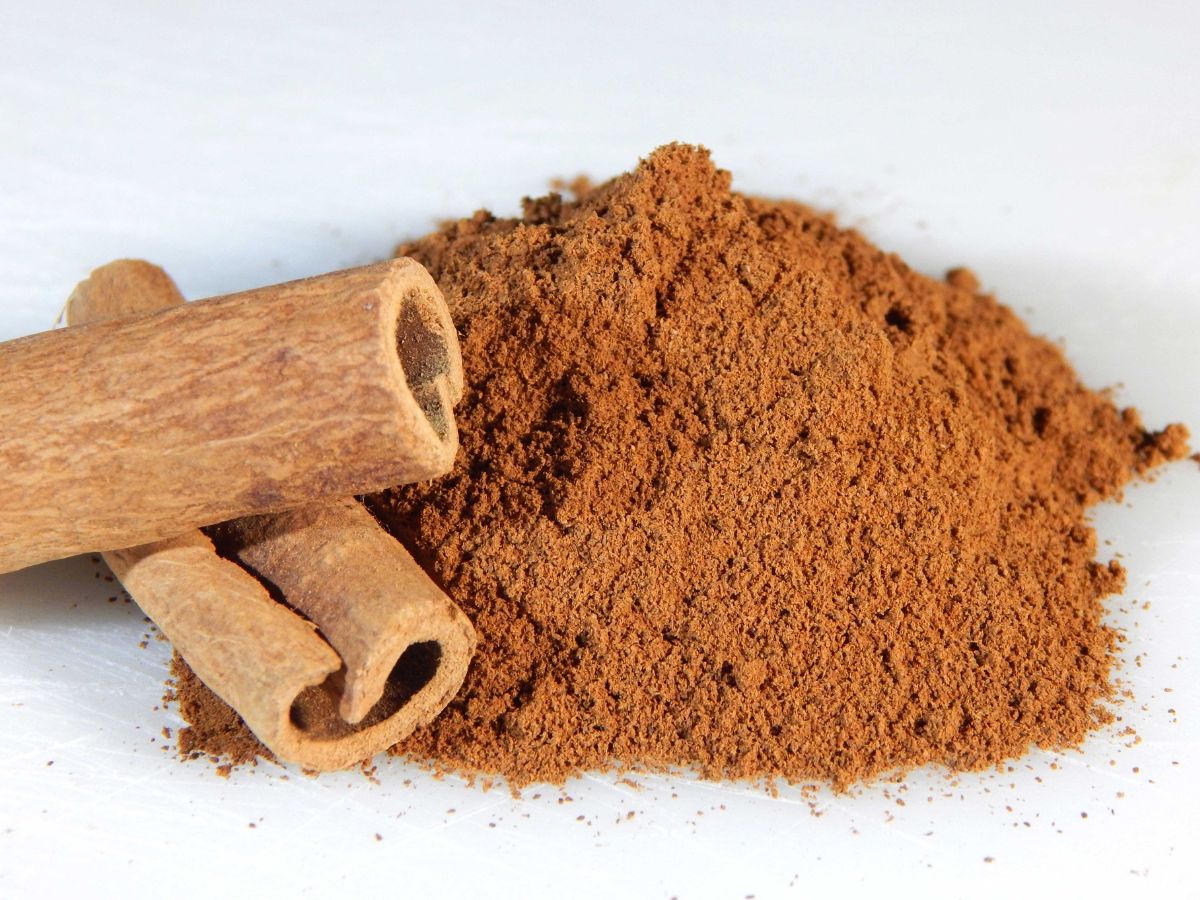Cinnamon isn’t just a spice that adds warmth and sweetness to your favorite dishes; it’s packed with incredible health benefits that may truly transform your daily life. Whether sprinkled on oatmeal, stirred into coffee, or used in cooking, cinnamon may significantly improve health. But what are the health benefits of cinnamon that everyone is talking about?
In this in-depth guide, we’ll explore 10 remarkable benefits of cinnamon and discuss whether there are any downsides to its consumption.
What Is Cinnamon?

Cinnamon is a widely popular spice that comes from the inner bark of trees belonging to the Cinnamomum family. Known for its warm, sweet, and slightly spicy flavor, cinnamon has been used for thousands of years in both culinary and medicinal practices.
There are two main types of cinnamon:
- Ceylon Cinnamon (often referred to as “true cinnamon”): This variety is lighter in flavor and contains lower levels of coumarin, making it safer for regular consumption.
- Cassia Cinnamon: Darker and stronger in taste, cassia is more commonly found in grocery stores, but it contains higher levels of coumarin, which can be harmful in large amounts.
Beyond its use in cooking and baking, cinnamon is packed with antioxidants, anti-inflammatory properties, and other compounds that offer a range of health benefits, including improving insulin sensitivity, supporting heart health, and reducing inflammation. The versatile spice can be enjoyed in various forms, such as ground cinnamon, sticks, or essential oil.
What are the top health benefits of cinnamon?
1. Improves Insulin Sensitivity
One of the standout health benefits of cinnamon is its potential to improve insulin sensitivity. Cinnamon contains a powerful compound called cinnamaldehyde, which plays a crucial role in enhancing insulin sensitivity. This compound interacts with insulin receptors on cells, making them more responsive to insulin. By boosting the ability of cells to absorb glucose, cinnamon may aid in managing blood sugar levels more effectively.
Additionally, cinnamon contains chromium, a trace mineral that may enhance insulin function by increasing the number of insulin receptors on cell membranes. Chromium may facilitate glucose uptake by cells, reducing the risk of insulin resistance, making cinnamon a valuable tool for those managing conditions like type 2 diabetes.
2. Lowers Blood Sugar Levels
Managing blood sugar levels is another significant health benefit of cinnamon. Cinnamaldehyde influences glucose metabolism by enhancing enzyme activity that breaks down carbohydrates. This results in a slower absorption of glucose into the bloodstream, preventing sharp spikes in blood sugar after meals. This ability to modulate blood sugar levels makes cinnamon a key player in stabilizing glucose.
The dietary fiber found in cinnamon further helps by slowing digestion and leading to a gradual release of glucose into the bloodstream. This process also promotes satiety, reducing overall calorie intake and assisting in weight management.
3. Reduces Heart Disease Risk
Cinnamon’s ability to support heart health is yet another benefit. The active compound cinnamaldehyde has been shown to lower levels of total cholesterol, LDL (bad) cholesterol, and triglycerides, while maintaining or even raising HDL (good) cholesterol levels. These changes reduce the risk of atherosclerosis, a condition that contributes to heart disease.
Cinnamon is also rich in polyphenols, which are powerful antioxidants that help reduce oxidative stress and inflammation, both of which are linked to cardiovascular diseases. The fiber in cinnamon helps lower cholesterol levels by binding to bile acids and facilitating their excretion, further supporting heart health.
4. Combats Bacterial and Fungal Infections
If you’re prone to infections, cinnamon might be your solution. Cinnamaldehyde, cinnamon’s main bioactive compound, disrupts the cell membrane integrity of bacteria and fungi, leading to their destruction. By inhibiting the growth of harmful microorganisms like Candida and various bacteria, cinnamon acts as a natural antimicrobial agent.
Additionally, cinnamon contains eugenol, a compound that interferes with the metabolic processes of bacteria and fungi. This antimicrobial action makes cinnamon a powerful natural remedy for preventing infections.
5. Promotes Brain Health
One of the lesser-known benefits of cinnamon is its potential to support brain health. Cinnamaldehyde acts as a potent antioxidant, helping to neutralize free radicals that may cause damage to brain cells. By reducing oxidative stress, cinnamon may prevent the deterioration of neurons and improve cognitive function.
Cinnamon has also been found to inhibit the accumulation of tau proteins, which are associated with Alzheimer’s disease. This neuroprotective benefit makes cinnamon a promising supplement for those looking to support long-term brain health.
6. Eases Digestive Discomfort
Cinnamon’s digestive benefits are equally impressive. Cinnamaldehyde stimulates the production of digestive enzymes, improving the breakdown and absorption of nutrients. It also reduces inflammation in the gastrointestinal tract, offering relief from conditions like irritable bowel syndrome (IBS) and inflammatory bowel disease (IBD).
The dietary fiber in cinnamon adds bulk to the stool, aiding regular bowel movements and preventing constipation. Cinnamon’s prebiotic properties also help maintain a healthy balance of gut bacteria, further supporting overall digestive health.
7. Aids in Weight Loss
Drinking cinnamon tea or incorporating it into your meals may support weight loss efforts. Cinnamaldehyde increases thermogenesis, the process by which the body burns calories and produces heat. This activation of metabolic pathways helps the body burn fat more efficiently.
Cinnamon also improves insulin sensitivity, which helps regulate blood sugar levels and prevents the storage of excess glucose as fat. The antioxidants in cinnamon, particularly polyphenols, may improve fat metabolism, reducing inflammation and oxidative stress linked to obesity.
8. Boosts the Immune System
One of the most powerful health benefits of cinnamon is its immune-boosting properties. Cinnamaldehyde combats bacteria, fungi, and viruses, supporting the immune system in its defense against infections. The polyphenols in cinnamon further enhance immune function by reducing oxidative stress and inflammation.
By protecting immune cells from damage, cinnamon ensures that the immune system remains robust and ready to fight off potential threats.
9. Improves Skin Health
Cinnamon may also work wonders for your skin. Cinnamaldehyde reduces inflammation, soothing conditions like acne, eczema, and psoriasis. It promotes better blood circulation, which enhances skin regeneration and repair. Cinnamon’s antioxidants neutralize free radicals that cause premature aging, helping to maintain youthful, healthy skin.
In addition, cinnamon may stimulate collagen production, reducing the appearance of fine lines and wrinkles. The essential oils in cinnamon also help reduce hyperpigmentation, leading to a more even skin tone.
10. Reduces Menstrual Discomfort
For those experiencing menstrual cramps, cinnamon offers natural relief. Cinnamaldehyde helps relax uterine muscles, reducing the intensity and frequency of cramps. It also improves blood flow to the uterine area, easing discomfort during menstruation.
The essential oil eugenol found in cinnamon has potent anti-inflammatory and analgesic properties, further alleviating menstrual pain.
What is the Best Way to Take Cinnamon?
Cinnamon can be enjoyed in various ways depending on your preference and health goals. Some of the best methods include:
- Sprinkling on food: Add cinnamon to oatmeal, yogurt, or smoothies for a warm, flavorful boost.
- Cinnamon tea: Steep a cinnamon stick in hot water to make a soothing tea. This is a gentle way to enjoy its benefits.
- Cinnamon supplements: If you prefer a more concentrated form, cinnamon supplements are available in capsule form.
- Baking and cooking: Incorporate cinnamon into your recipes, whether it’s baking desserts or adding it to savory dishes like curries and stews.
Why Do Bodybuilders Use Cinnamon?
Bodybuilders often incorporate cinnamon into their diets because it can help with blood sugar control. Stabilizing blood sugar levels is important for managing energy and preventing fat storage. Cinnamon may also improve insulin sensitivity, allowing better nutrient uptake into muscle cells. Additionally, its anti-inflammatory properties help in recovery after intense workouts, making it a valuable addition to a bodybuilder’s nutrition plan.
What Does Cinnamon Do Before Bed?
Taking cinnamon before bed may promote better sleep by stabilizing blood sugar levels, which can prevent late-night spikes and crashes. Cinnamon is also rich in antioxidants, which may help reduce oxidative stress, contributing to more restful sleep. When combined with warm milk or herbal tea, cinnamon may create a calming effect that helps you unwind before bed.
Is It Safe to Use Cinnamon Every Day?
For most people, consuming cinnamon in moderate amounts daily is considered safe and may offer several health benefits. However, it’s important to choose the right type of cinnamon and avoid overconsumption, especially of cassia cinnamon, which contains coumarin—a compound that can be harmful to the liver in large amounts. Ceylon cinnamon, also known as “true cinnamon,” is a safer option for everyday use. As with any supplement or spice, it’s wise to consult a healthcare provider, particularly if you have underlying health conditions.
Which Type of Cinnamon is Best?
When choosing cinnamon for daily use, Ceylon cinnamon is considered the best option. It contains lower levels of coumarin compared to cassia cinnamon, making it safer for long-term consumption. Ceylon cinnamon has a lighter flavor and is often referred to as “true cinnamon.” On the other hand, cassia cinnamon, which is darker and more commonly found in grocery stores, should be used in smaller amounts to avoid potential health risks.
Can I Drink Cinnamon and Honey Every Day?
Yes, drinking a mixture of cinnamon and honey daily may offer several health benefits. This combination is known for its anti-inflammatory, antioxidant, and antimicrobial properties. It may help with digestion, immune support, and even weight management when consumed regularly.
The benefits of honey are numerous:
- Boosts immunity: Honey contains natural antioxidants and enzymes that can help strengthen the immune system.
- Supports digestive health: Honey acts as a prebiotic, feeding the good bacteria in your gut and promoting better digestion.
- Soothes sore throats: Thanks to its anti-inflammatory properties, honey can provide relief from sore throats and coughs.
- Natural energy booster: Honey provides a quick source of energy due to its natural sugars, making it a great alternative to processed sweeteners.
Mix a teaspoon of honey and a pinch of cinnamon into warm water or tea to enjoy both the benefits of honey and cinnamon. However, moderation is key, as too much honey can add unnecessary sugars to your diet.
Can You Put Cinnamon in Coffee?
Absolutely! Adding cinnamon to your coffee is a delicious way to boost both flavor and health benefits. Cinnamon can naturally sweeten coffee without the need for sugar, and its antioxidant properties may enhance the health effects of your morning brew.
When combined with black coffee, the benefits of black coffee include:
- Boosts metabolism: The caffeine in black coffee can increase metabolic rate and help with fat burning.
- Improves mental focus: Drinking black coffee may enhance cognitive function, improve concentration, and boost energy levels.
- Supports heart health: Rich in antioxidants, black coffee may help reduce the risk of heart disease by lowering inflammation and improving blood circulation.
- May reduce the risk of certain diseases: Studies suggest that black coffee can lower the risk of Parkinson’s, Alzheimer’s, and certain types of cancer.
To enjoy this powerhouse combination, sprinkle a small amount of cinnamon into your coffee grounds before brewing or stir it directly into your cup for a flavorful, spicy kick that brings out the benefits of black coffee in every sip.
Potential Risks of Consuming Cinnamon
While the health benefits of cinnamon are numerous, excessive consumption may pose risks. The compound coumarin found in cassia cinnamon may lead to liver damage if consumed in large amounts. Cinnamon may also cause allergic reactions in some individuals and may have blood-thinning effects, which can be dangerous for those on blood-thinning medications.
Additionally, consuming large amounts of cinnamon might lead to gastrointestinal discomfort, including nausea or diarrhea. It’s essential to use cinnamon in moderation and consult a healthcare provider if you have pre-existing health conditions.
Conclusion: Elevating Your Health with Cinnamon and More
Incorporating cinnamon into your daily routine offers a wealth of health benefits, from improving insulin sensitivity to supporting heart health. But why stop there? Complementing the benefits of cinnamon with other nutrient-rich foods can take your wellness to the next level.
For instance, the benefits of wasabi include its potent anti-inflammatory and antimicrobial properties, which help support gut health and boost immune function. Wasabi’s rich antioxidant profile aligns perfectly with the protective effects of cinnamon, making it an ideal addition to your meals.
Similarly, the benefits of guava leaf bring a powerful punch to your health. Guava leaves are known for their ability to regulate blood sugar levels, which complements cinnamon’s glucose-managing properties. They also provide strong antioxidant support, promoting heart health and aiding digestion.
By integrating these powerful foods into your diet, you’ll not only enjoy the health benefits of cinnamon, but also create a well-rounded, nutrient-rich approach to your daily wellness routine.
Remember, moderation is key, and it’s always best to consult with a healthcare professional before making any significant dietary changes.





J’ai toujours adoré le goût de la cannelle, mais je ne savais pas qu’elle avait autant de bienfaits pour la santé ! Je vais commencer à l’incorporer plus souvent dans mes repas. Merci pour cet article informatif !